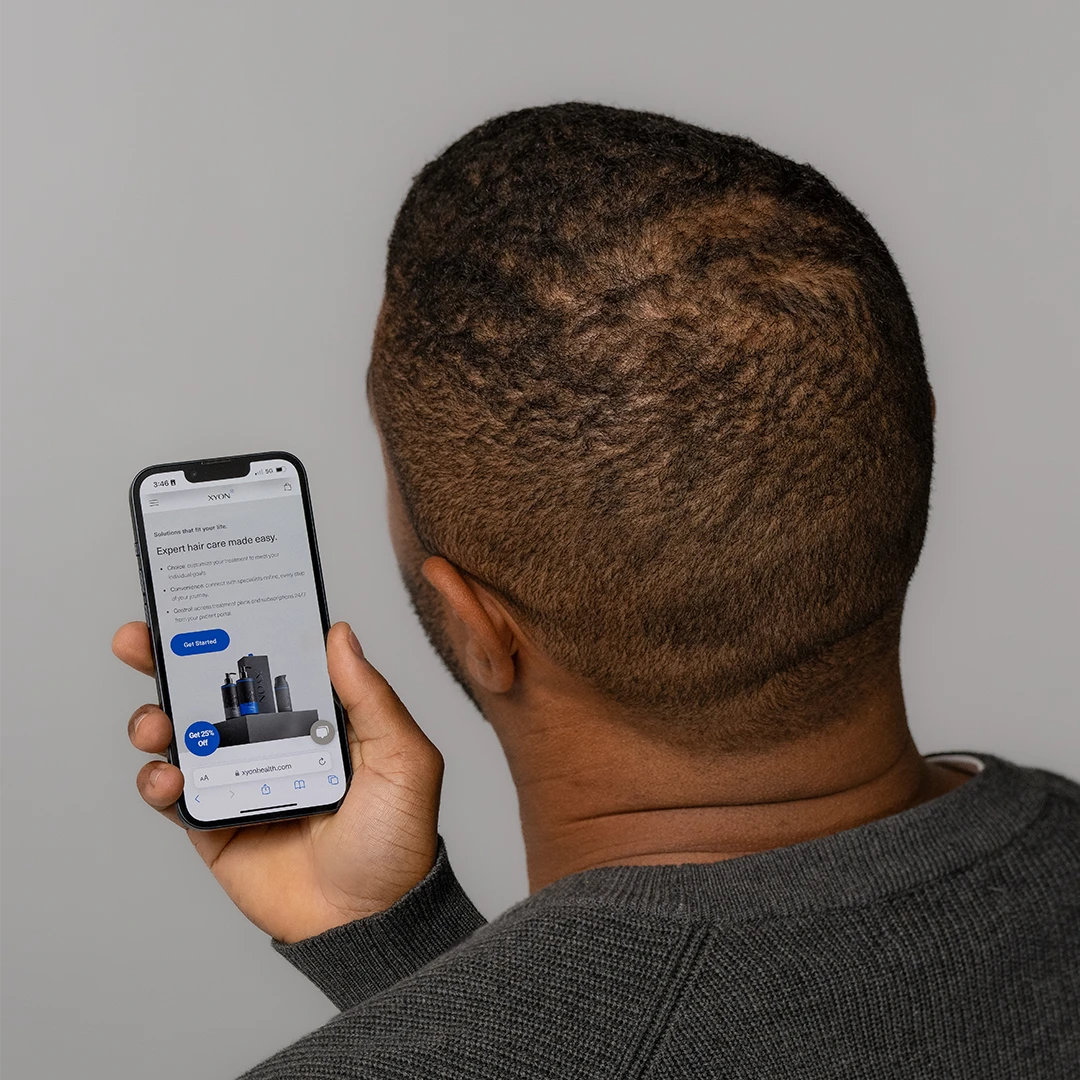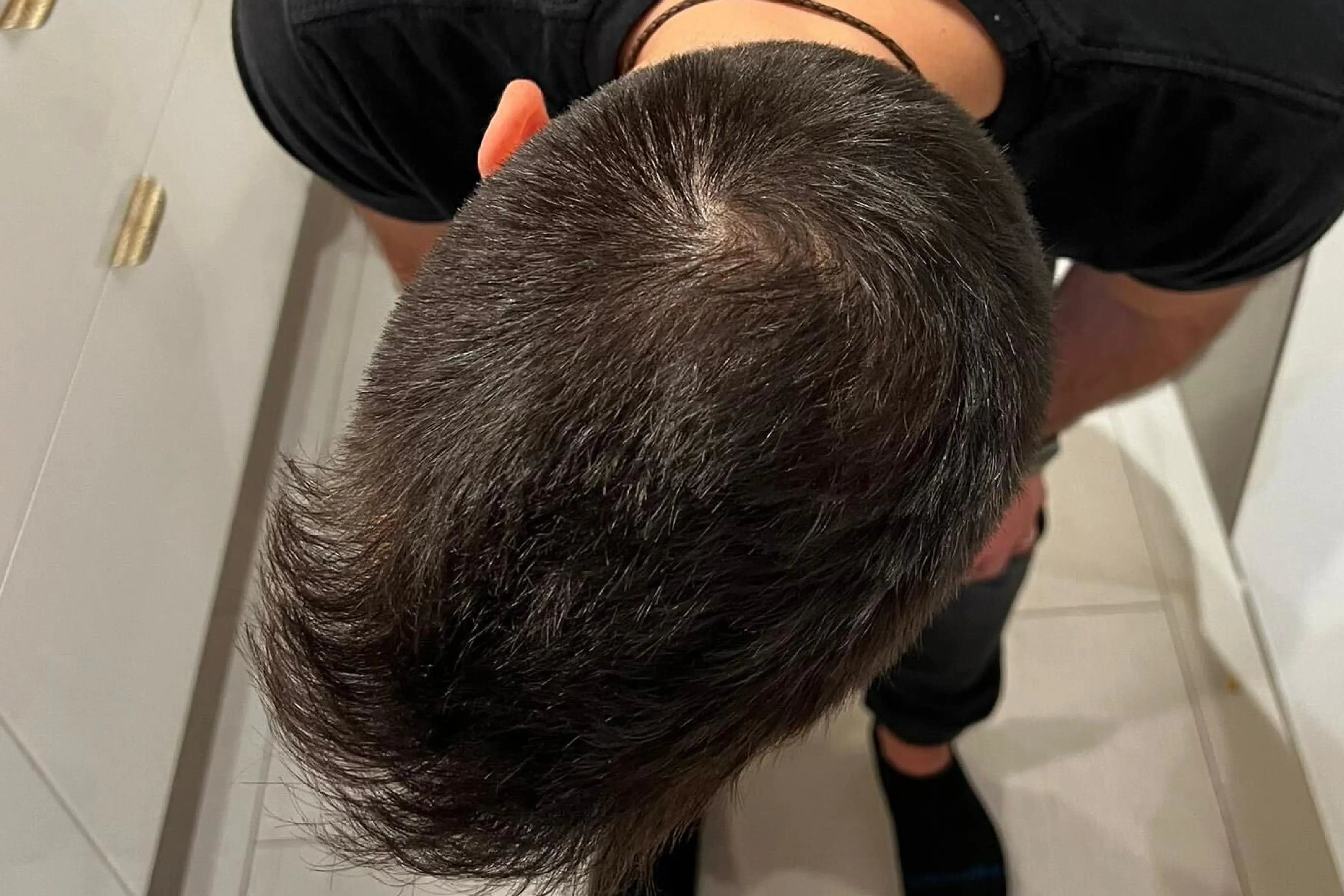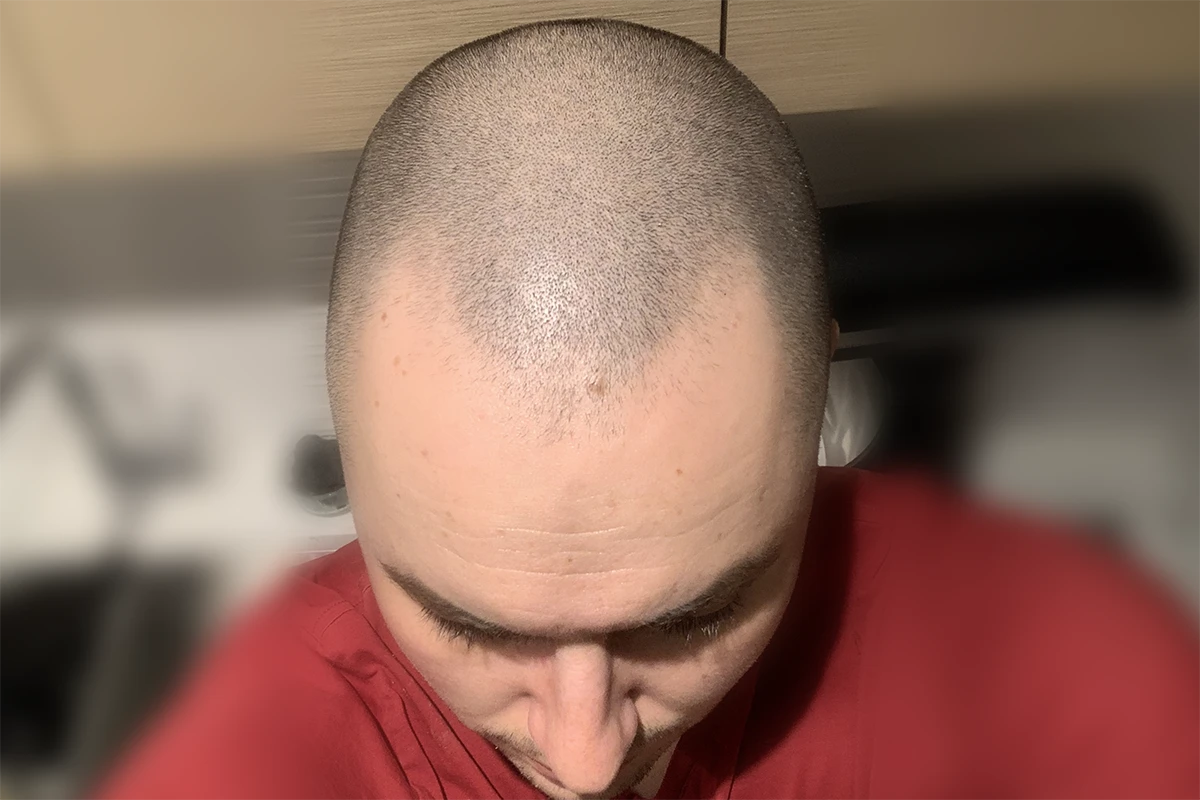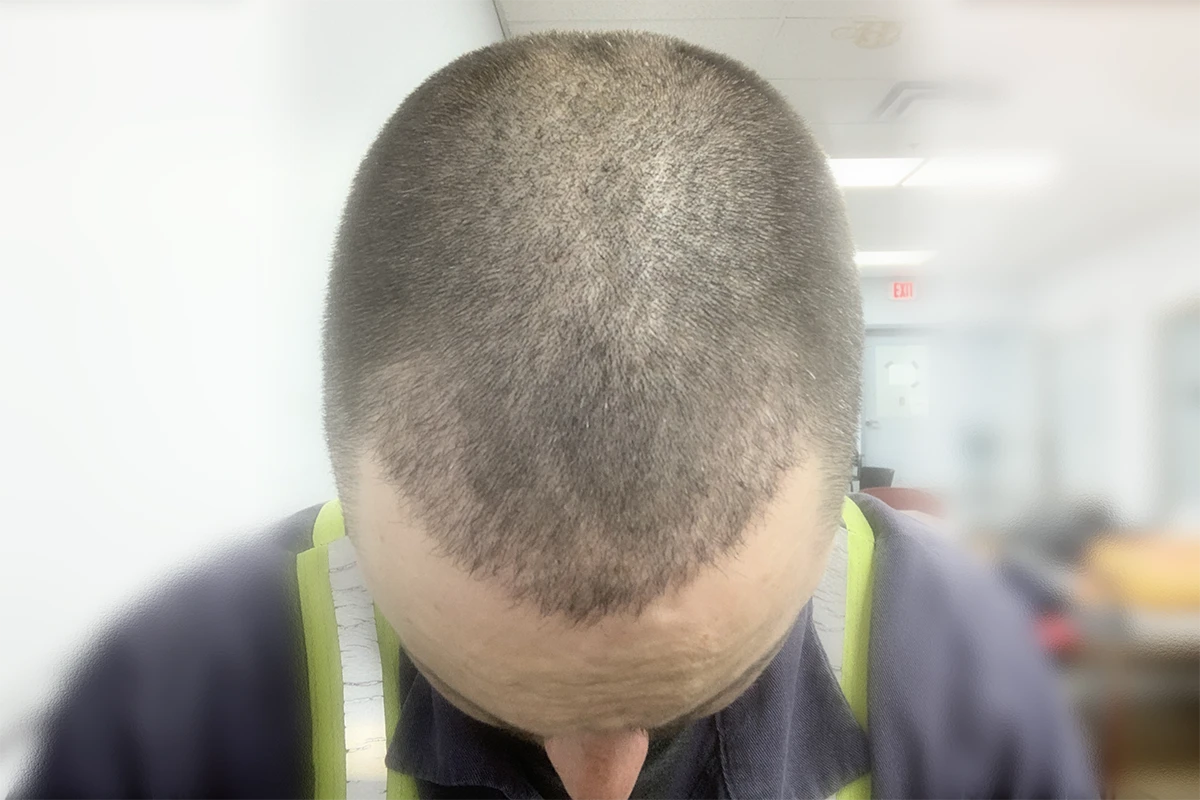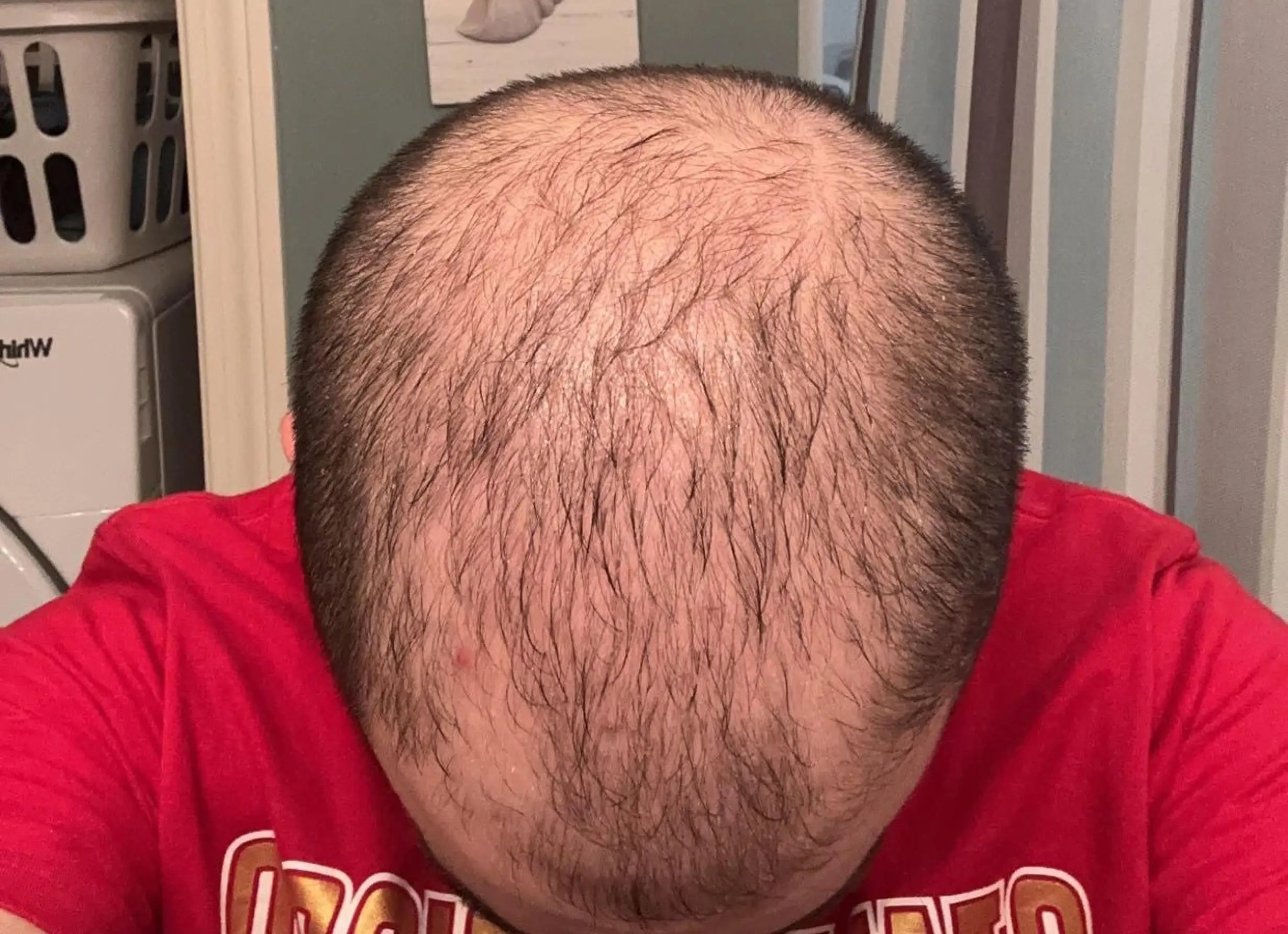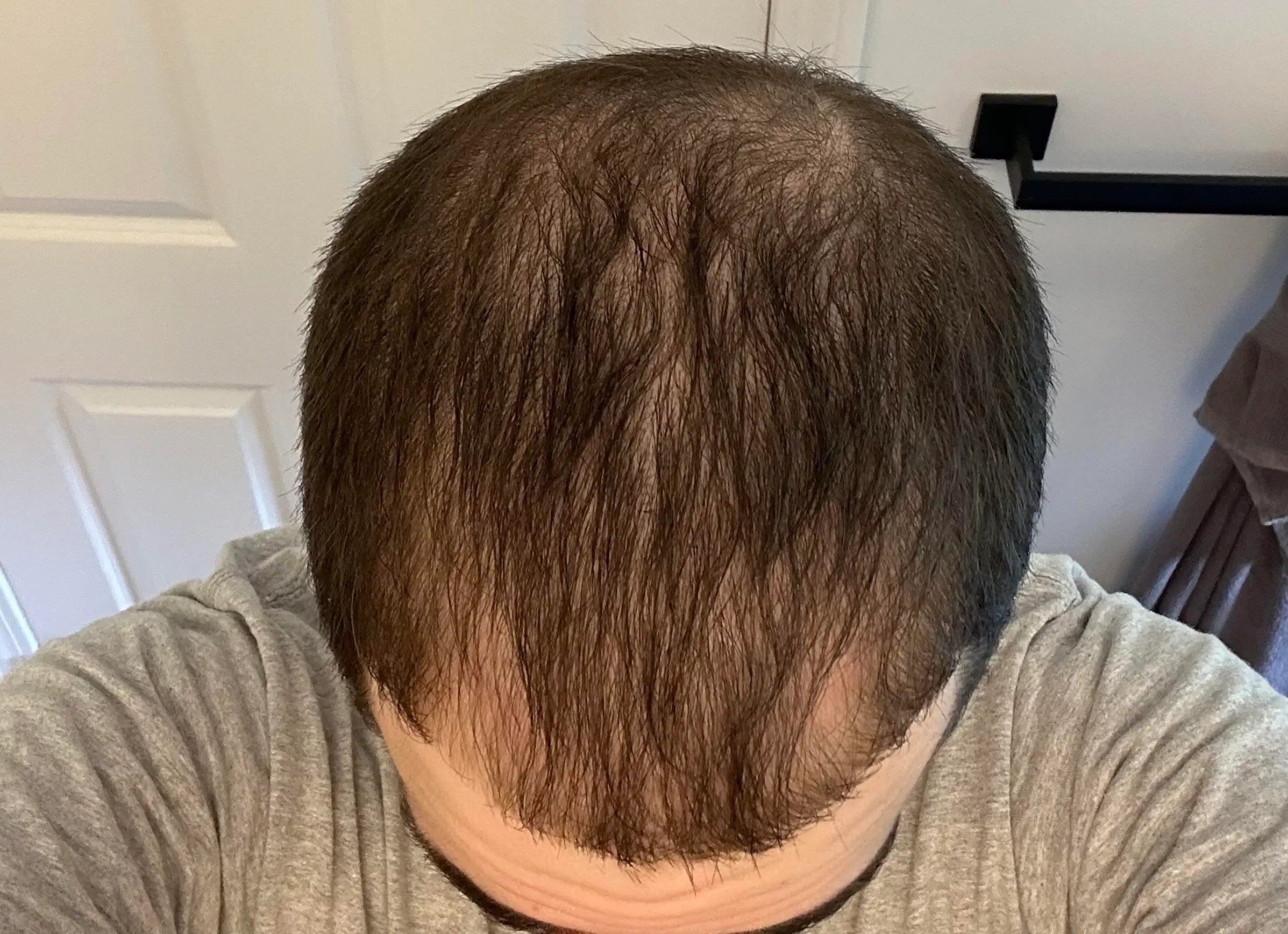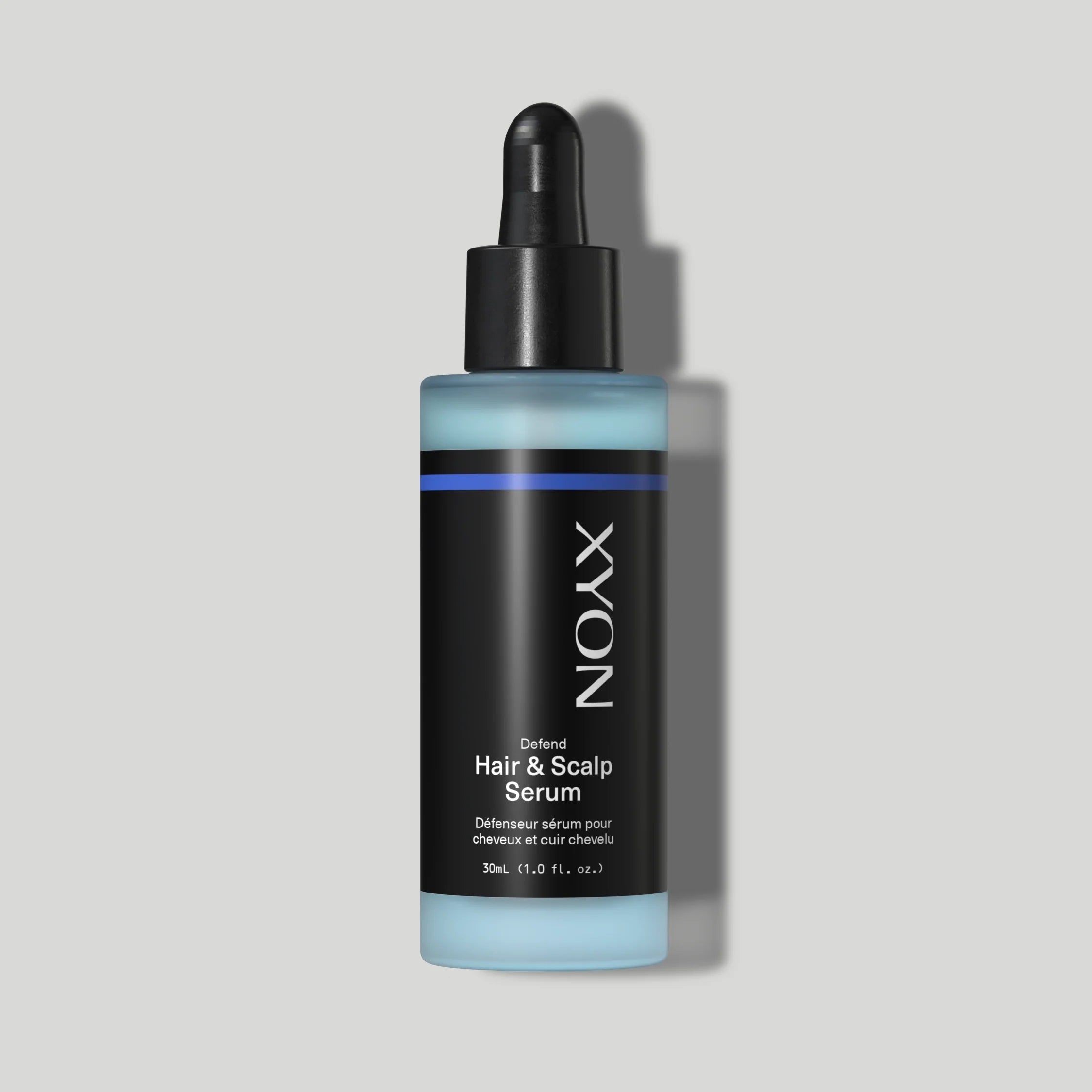01.
Complete our Questionnaire
Answer questions about your hair and medical history so we can create a personalized treatment plan based on your needs.
02.
Review With a Specialist
Our board-certified specialist will review your questionnaire and consult with you online to further tailor your treatment plan.
03.
Receive a Personalized Treatment Plan
The doctor will recommend a prescription treatment based on your medical history, needs, and treatment preferences.
04.
Discreet Home Delivery
Your hair loss prescription will be delivered to your door every 3 months in a plain box. Free shipping. No contracts. Pause or cancel anytime.
05.
Ongoing Support From A Doctor
Your board-certified dermatologist will be available for ongoing support and treatment plan review when you need it.


